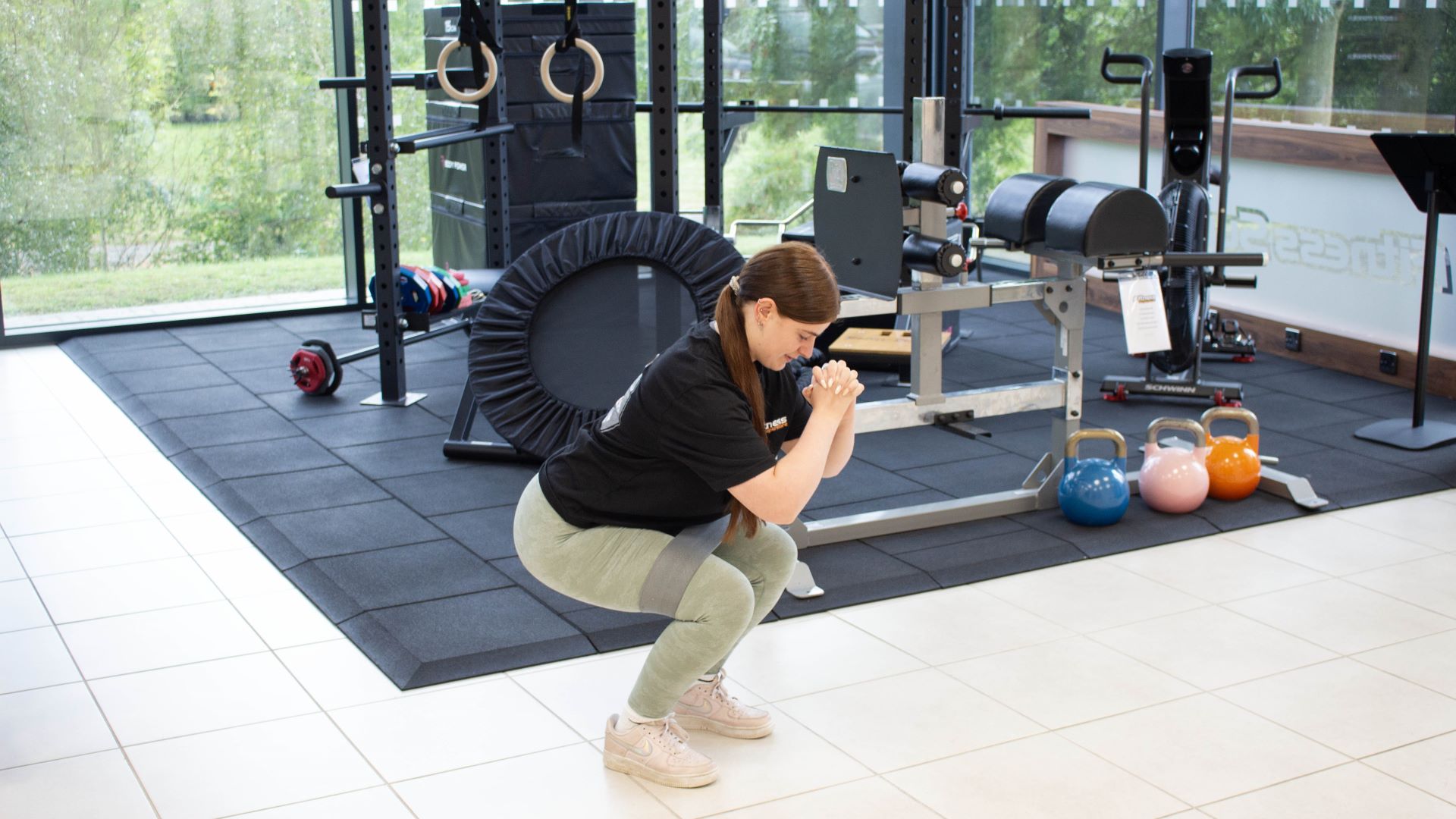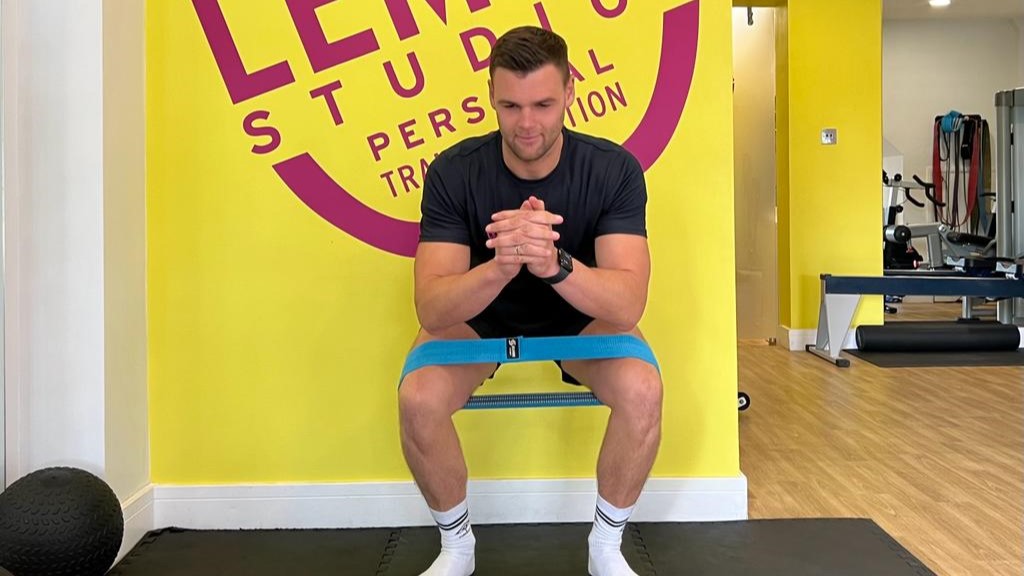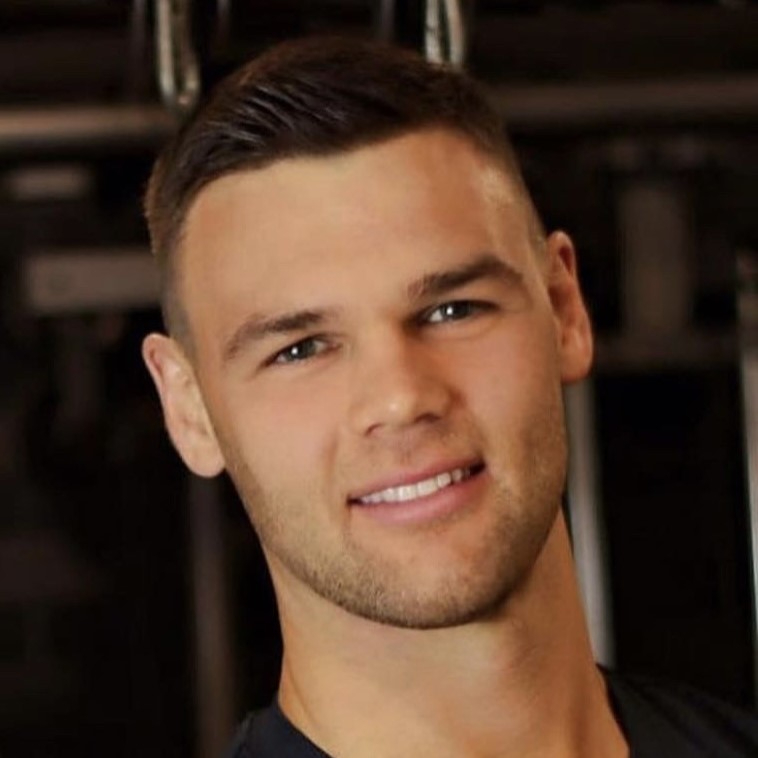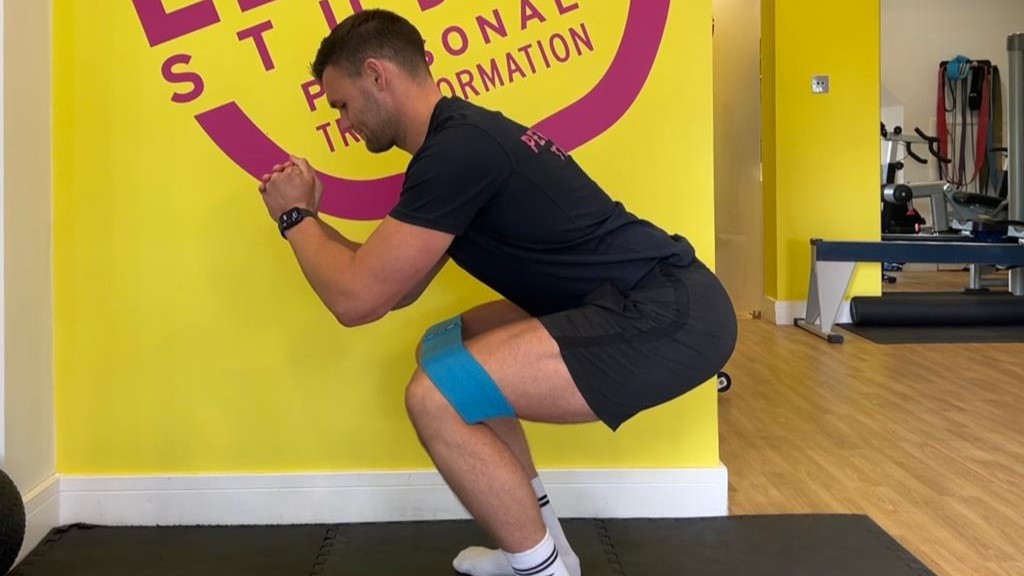
Start your week with achievable workout ideas, health tips and wellbeing advice in your inbox.
You are now subscribed
Your newsletter sign-up was successful
I love squatting, but I have always struggled to keep my legs correctly aligned when carrying out the movement—particularly once I started adding weighted goblet squats into my routine. A good leg workout should be challenging, but not at the expense of good form, so I made it my personal mission to find a fix.
One solution was to do the squats in front of a mirror, but as I often work out from home I don't always have access to one. I spoke to Sam Shaw, a qualified PT and the founder of Lemon Studios in London UK, who advised that I could try using a resistance band.
How to do a squat with a resistance band for support
"Resistance bands are a really useful piece of kit for trying to improve your squat technique. To effectively do this you place the band around your legs, comfortably just above your knees," says Shaw.

"When you squat, you should start by standing up straight and placing your legs shoulder width apart, or a little wider, and focus on keeping your chest up, hinge the hips backwards and keep the weight predominantly through the heels as you gently lower down," explains Shaw.
"As you squat, you will push your knees out against the band and the resistance will improve your glute activation."

Sam Shaw is a certified personal trainer and the founder of Lemon Studios. He has trained several actors and television presenters and believes in a holistic approach to mental and physical health, incorporating exercise and nutrition.
Why is it useful?
"This is very useful for those with slightly lazy glutes or who are quad dominant on a squat. It’s very common with people who struggle with glute engagement when squatting for their knees to cave inwards, which means the load will be travelling through the quads, and potentially the knees and IT band. So by focusing on driving the knees out against the band, you are engaging the glutes and activating the whole posterior chain—glutes, hamstring, calves and abductors," says Shaw.

Sure enough, when I added the resistance band into my routine, my squat form improved and my glutes kicked into action.
Start your week with achievable workout ideas, health tips and wellbeing advice in your inbox.
Bear in mind
Not every personal trainer recommends this method to help with squat form, so we spoke to Keoghan Bellew a Personal Trainer at Fitness Superstore, who gave us this caveat:
"When using resistance bands to improve squat form, it's crucial to ensure the band's resistance is appropriate for your strength and mobility levels. Too much resistance can alter form negatively, while too little might not provide the intended benefit. Beginners may want to start with a lower strength band and gradually increase the resistance as their strength improves."
"Using a resistance band can improve form in other ways, too. Anchoring a long loop resistance band under the feet and around the shoulders can encourage you to maintain an upright posture during squats, while also challenging the upper body and core muscles. This can be especially effective for goblet squats or split squats," adds Bellew.

Lou Mudge is a Health Writer at Future Plc, working across Fit&Well and Coach. She previously worked for Live Science, and regularly writes for Space.com and Pet's Radar. Based in Bath, UK, she has a passion for food, nutrition and health and is eager to demystify diet culture in order to make health and fitness accessible to everybody.
Multiple diagnoses in her early twenties sparked an interest in the gut-brain axis and the impact that diet and exercise can have on both physical and mental health. She was put on the FODMAP elimination diet during this time and learned to adapt recipes to fit these parameters, while retaining core flavors and textures, and now enjoys cooking for gut health.
